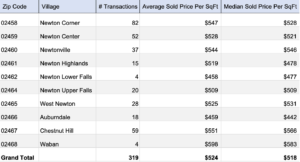Moving to a new location is a big life event that shouldn’t be made on a whim!
Having helped hundreds of folks relocate, we are providing our top tips on what research you should do and how to go about the process.
Weather
According to the American Academy of Family Physicians, Seasonal Affective Disorder (SAD) is reported to impact 10-20% of the US population.
If you’re considering a big move — perhaps to different state — take a moment and research the weather!
With resources such as CurrentResults.com you can even find out the average amount of cloudy days an area has per year.
Employment Options
If you don’t have a job lined up, assess your skills and research all the potential employers in the area.
It’s important to ensure that there are opportunities for employment in your field, or that the job market is strong enough to support you in finding employment.
One site to check out is IBIS World — they provided state-by-state economic data, trends and list of large employers. Using their site you can learn about local companies, visit their career pages, and take a location-first approach to your job search.
It costs money for employers to post jobs on sites like LinkedIn, Indeed.com, and ZipRecruiter — so don’t solely rely on these sites during your search.
Cost of Living
Once you have a general sense of your employment options and transportation needs, begin to look into the cost of living in various communities and make your Wishlist!
A real estate agent can research important factors such as tax rates, recent sales, and advise on communities that would fit your budget and desires.
When it comes to picking an agent, we recommend using one that has done deals across the state. They are typically willing to travel, work full-time, and have a broader knowledge base than a hyper-local agent.
An early conversation with a mortgage broker is also merited as they will help you understand what you can afford.
School Districts
If you have children — or intend to — pay attention to local school district rankings.
Communities with highly ranked public schools tend to be more expensive, but aren’t necessarily nicer places to raise a family.
Some people choose to save on housing costs by moving to a lesser district, invest the savings, and then when their kids are of age pay for private schooling. The charter school system is another option detached from district zoning that you should consider.
Amenities and Services
Google Maps has made it pretty easy to assess local amenities and services in the area, such as grocery stores, hospitals, libraries, and parks.
Take some time to research what there is to do and whether those activities fit into your lifestyle.
While on Google, try the “departure time” feature to get a sense of the traffic patterns and similarly check public transportation schedules if you don’t have a car.
Spend Time in the Community
For whatever reason, you might not vibe with an area, and no amount of research will cue you in on that.
We highly recommend clients spend a day exploring their communities of interest and walk around.
Try popping into local shops, grabbing lunch and striking up a conversation with locals — you might learn some surprising things!






